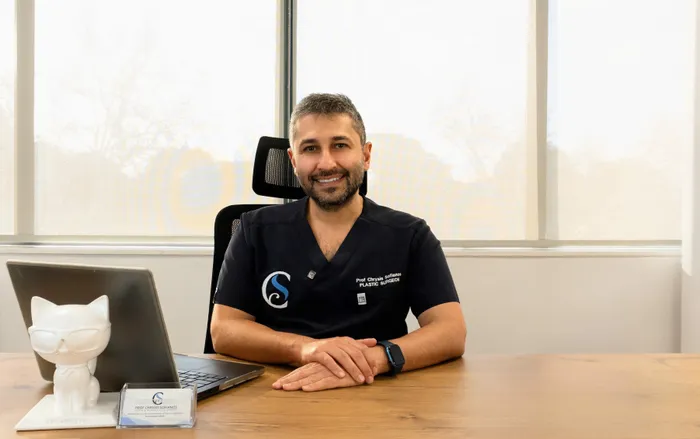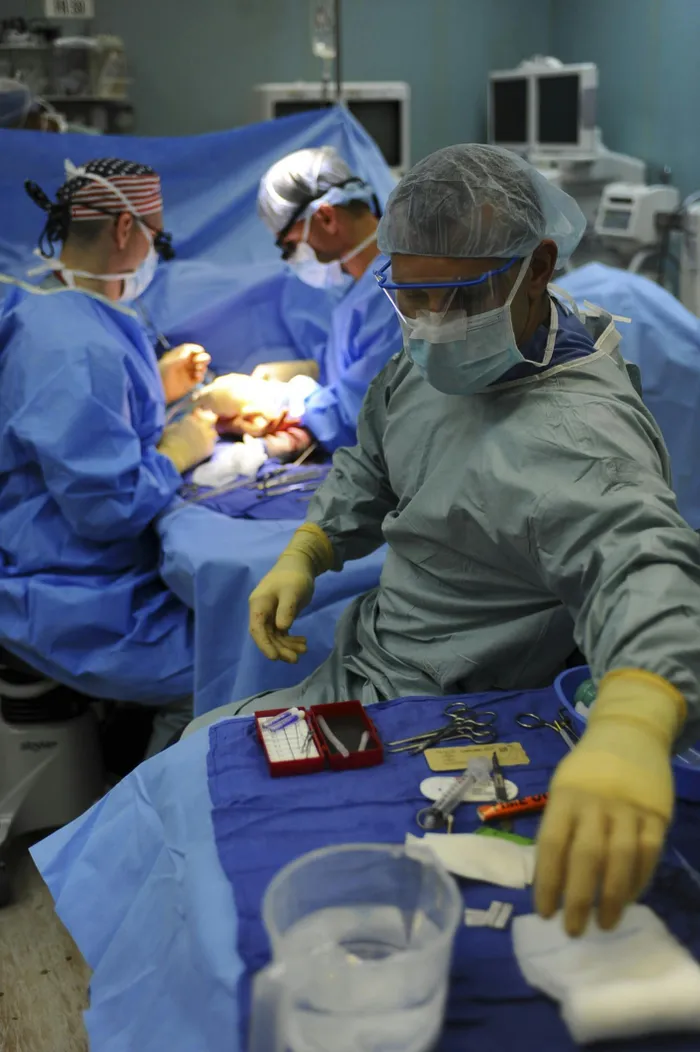
Professor Chrysis Sofianos, an APRASSA registered plastic surgeon.
Image: Supplied.
In today's digital age, many of us turn to social media for answers. We search for information, find inspiration and sometimes even look for services online.
However, this could lead to risks that many people don't see coming.
Recent findings suggest that scrolling through social media might be putting your safety at risk, especially when it comes to seeking cosmetic surgery in South Africa.
Many users are lured in by their shiny adverts online. These appealing posts often feature stunning before-and-after photos, glowing testimonials and attractive deals, but just because someone looks good online doesn't mean they have the proper training or qualifications to do the procedures they claim to perform.
The trend of misleading marketing tactics has led to a concerning rise in the number of complaints filed with the Health Professions Council of South Africa (HPCSA).
In 2023/24, over 2000 complaints were logged, an increase of 40% from three years earlier, with many focusing on cases of negligence and wrongful practices.
Although the HPCSA doesn’t specify how many of these complaints involved cosmetic procedures, the Association of Plastic, Reconstructive and Aesthetic Surgeons of Southern Africa (APRASSA) has expressed concerns about unqualified individuals performing complex surgeries.

South Africans are at risk from unqualified cosmetic surgeons on social media.
Image: Pexels.
Professor Chrysis Sofianos, an APRASSA-registered plastic surgeon based in Johannesburg, says: "Only specialists in plastic and reconstructive surgery are trained and recognised to perform complex operations safely. Anything else puts patients at risk of life-long complications."
"The consequences can leave patients scarred, disfigured, or in need of expensive corrective surgery, sometimes costing upwards of hundreds of thousands of rand."
Sofianos gives the following tips:
Recently, "The Mommy Club" reality TV star Nozipho Ntshangase opened up about her experiences with cosmetic surgery.
Ntshangase underwent a breast lift and tummy tuck, and her journey highlights the importance of making informed choices.
"I know how tempting those Instagram results look, but you often don’t know who’s really behind the scalpel. For me, it was about peace of mind. I wanted a surgeon who was properly qualified, who operates in a proper hospital, and who was upfront about the risks," she stated.
For those like Ntshangase, understanding the difference between flashy advertisements and real qualifications has never been more crucial.
Ntshangase offers the following tips:
If you are thinking about going under the knife, Sofianos suggests that patients should thoroughly check their doctor’s credentials using the HPCSA iRegister portal and verify affiliations with APRASSA.
"South Africa has world-class specialists. But patients must do their homework. Don’t trust titles, don’t trust filtered photos and don’t trust bargain prices. Only trust proper credentials - your life and your safety may depend on it," he says.
Related Topics: